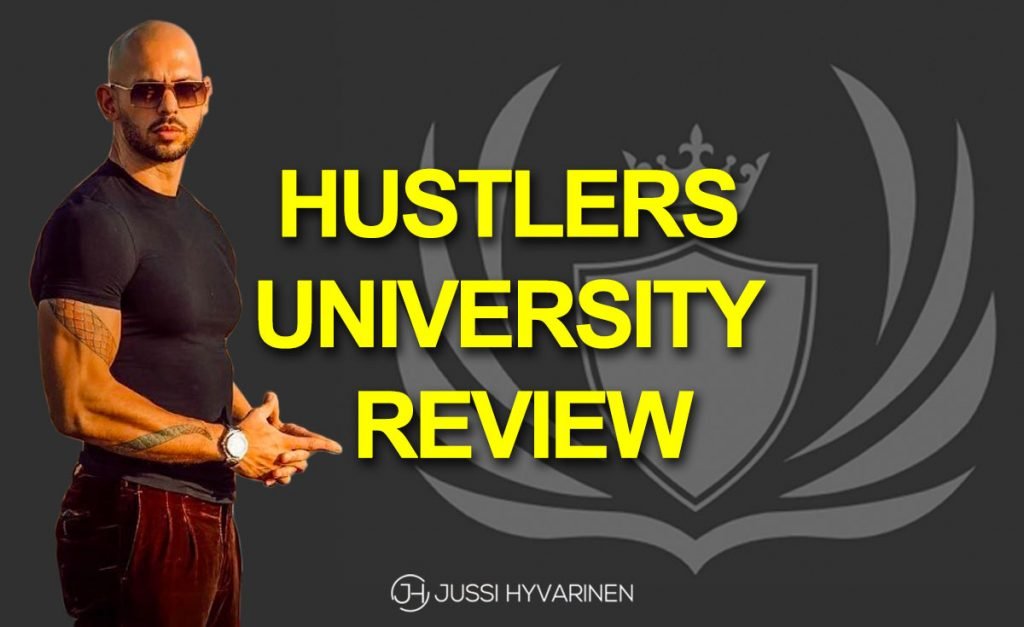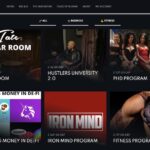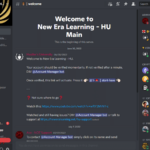Has anyone actually made money from Hustlers University? This question has become a point of contention among those seeking financial success through online learning platforms. The promise of financial freedom and entrepreneurial mastery has attracted a large following, but the reality remains elusive for many. Hustlers University, founded by Andrew Tate, has positioned itself as a gateway to financial independence, offering courses and programs designed to teach various skills and strategies for generating income. However, amidst the hype and testimonials, a closer look reveals a complex web of financial claims, student experiences, and ethical considerations that require careful examination.
This article delves into the intricacies of Hustlers University, analyzing its marketing strategies, curriculum, business model, and the experiences of students. We explore the financial transparency of the platform, comparing it to alternative learning approaches and examining the ethical implications of its marketing tactics. By evaluating the evidence and considering diverse perspectives, we aim to provide a comprehensive overview of Hustlers University and its potential for generating real income.
The Promise of Hustlers University
Hustlers University, founded by Andrew Tate, promised to transform individuals into “successful entrepreneurs” by teaching them “proven methods” to generate wealth. The platform presented itself as a gateway to financial freedom, attracting a large audience with its aggressive marketing strategies and bold claims.
Marketing Strategies
Hustlers University employed a multi-faceted marketing approach to attract students.
- Social Media Presence: The platform heavily leveraged social media platforms like Instagram and TikTok, using engaging content and influencer marketing to reach a wider audience.
- Influencer Endorsements: Hustlers University collaborated with prominent figures, including celebrities and athletes, to promote its programs and generate credibility.
- Targeted Advertising: The platform used targeted advertising on various platforms, reaching individuals interested in entrepreneurship, business, and wealth creation.
- Testimonials and Success Stories: Hustlers University showcased testimonials and success stories from purported graduates, highlighting their financial achievements and claiming these were the result of the program.
Courses and Programs
Hustlers University offered a range of courses and programs, categorized into different modules, covering various aspects of entrepreneurship and wealth generation.
- Trading: This module focused on teaching students various trading strategies, including forex, cryptocurrency, and stock trading.
- E-commerce: This module provided guidance on starting and scaling online businesses, including dropshipping, affiliate marketing, and online retail.
- Copywriting: This module focused on developing effective copywriting skills for marketing and sales purposes.
- Sales and Marketing: This module covered strategies for generating leads, building sales funnels, and increasing conversion rates.
- Personal Development: This module addressed aspects like mindset, motivation, and discipline, aiming to empower students to achieve their goals.
Testimonials and Success Stories
Hustlers University heavily relied on testimonials and success stories to attract potential students. The platform presented these stories as evidence of the program’s effectiveness, highlighting the financial gains achieved by individuals who participated. While some testimonials may have been genuine, there is no concrete evidence to verify the authenticity or the extent of the claimed success. It’s important to note that testimonials should be taken with a critical eye, as they are often presented in a selective and curated manner.
Examining the Curriculum
Hustlers University claims to offer a diverse range of courses designed to empower individuals with the knowledge and skills needed to succeed in various entrepreneurial ventures. The curriculum encompasses a wide spectrum of topics, including e-commerce, affiliate marketing, dropshipping, and social media marketing. However, a closer examination reveals that the quality and practical application of these courses are subject to debate.
The Content and Quality of Courses
The content of the courses offered by Hustlers University is largely based on existing information readily available online. Many of the strategies and tactics taught are common knowledge within the entrepreneurial community and are not unique to the platform. The quality of the instruction varies, with some courses providing valuable insights while others are superficial or outdated.
Skills and Knowledge Taught
Hustlers University courses primarily focus on teaching practical skills related to online business and marketing. Some of the key skills covered include:
- E-commerce: Building and managing online stores, product sourcing, and customer service.
- Affiliate Marketing: Promoting products and services of other companies and earning commissions on sales.
- Dropshipping: Selling products online without holding inventory, fulfilling orders directly from suppliers.
- Social Media Marketing: Utilizing social media platforms to build brand awareness, engage with customers, and drive sales.
- Copywriting: Crafting compelling marketing materials that persuade customers to take action.
- Email Marketing: Building email lists and using email to nurture leads and drive conversions.
Practical Application of Skills Learned
The effectiveness of the skills learned in Hustlers University courses depends largely on individual effort and the specific business model pursued. While the platform provides a framework and resources, it does not guarantee success. Many students may struggle to implement the strategies effectively due to factors such as:
- Lack of Experience: The courses may not adequately address the challenges faced by beginners in the entrepreneurial world.
- Competition: The online business landscape is highly competitive, requiring significant effort and innovation to stand out.
- Constant Evolution: Online marketing strategies are constantly evolving, requiring ongoing learning and adaptation.
The Business Model: Has Anyone Actually Made Money From Hustlers University
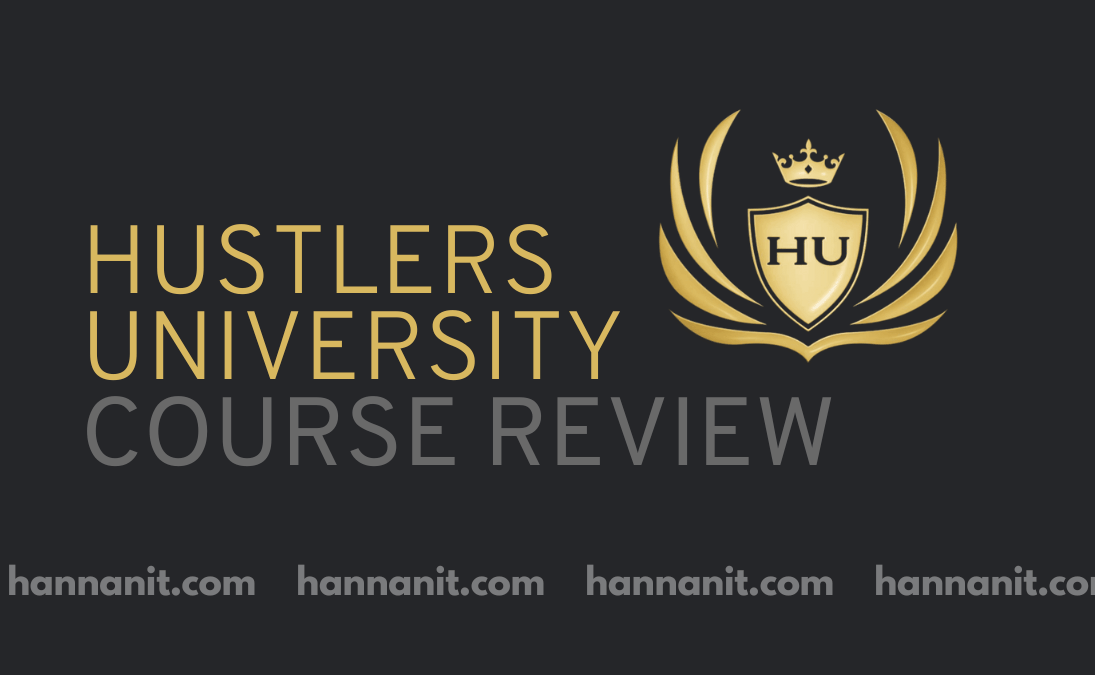
Hustlers University, like many online platforms, operates on a subscription-based model. This means that users pay a recurring fee to access the content and resources offered by the platform. While the specific financial details are not publicly available, we can analyze the structure based on publicly available information and industry trends.
Revenue Streams
Hustlers University generates revenue primarily through two main streams:
- Membership Fees: The core of the business model is the recurring membership fee paid by users. This fee grants access to the platform’s content, courses, and community features. The exact cost varies depending on the membership plan, but it’s typically in the range of a few hundred dollars per year.
- Affiliate Marketing: Hustlers University also generates revenue through affiliate marketing. This involves promoting other products or services on the platform and earning commissions on sales generated through these referrals. The platform often promotes products and services related to the skills and knowledge taught within the courses, such as online marketing tools, e-commerce platforms, and digital marketing strategies.
Profit Margins
The profit margins of Hustlers University are difficult to estimate without access to its financial statements. However, given the online nature of the platform and its reliance on digital content, the potential for high profit margins exists. The costs associated with running the platform are primarily related to content creation, platform maintenance, and marketing.
Costs Associated with Accessing the Platform
The cost of accessing Hustlers University is primarily the membership fee. This fee provides access to all the content and resources offered on the platform. However, additional costs might be incurred by users, such as:
- Software and Tools: Some of the courses and strategies taught on Hustlers University might require users to purchase additional software or tools. These could include email marketing platforms, social media scheduling tools, or website builders.
- Marketing Expenses: Users might incur marketing expenses if they choose to implement the strategies taught on the platform, such as advertising costs for their own businesses or products.
Student Experiences
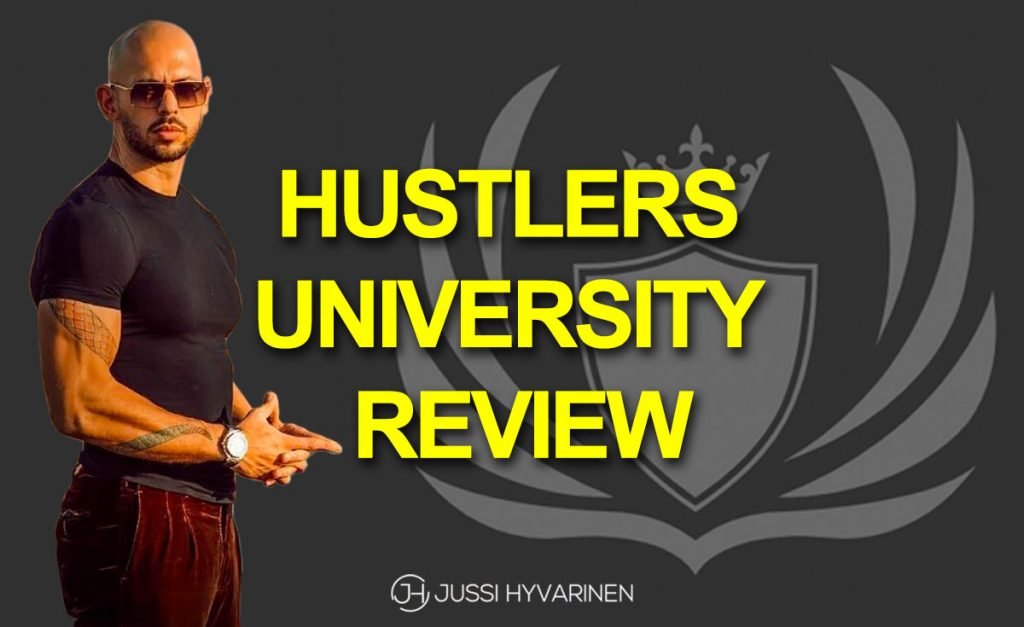
The experiences of Hustlers University students vary greatly, ranging from success stories to reports of frustration and disappointment. This section will delve into the diverse experiences of individuals who have enrolled in the program, examining both positive and negative accounts.
Success Stories
Many students claim to have achieved financial success through Hustlers University. They often attribute their success to the program’s teachings on various business models, including e-commerce, affiliate marketing, and social media marketing. These individuals often share their experiences through testimonials and online communities, showcasing their earnings and highlighting the program’s effectiveness.
- One student, a single mother named Sarah, claimed to have generated over $10,000 in her first month after applying the program’s strategies to her online business.
- Another student, a college dropout named John, reported earning a consistent income of $5,000 per month through affiliate marketing, thanks to the program’s guidance on building a strong online presence and driving traffic to his website.
It’s important to note that these success stories are often shared by individuals who have actively applied themselves and dedicated significant time and effort to the program.
Frustration and Dissatisfaction
While many students report positive experiences, others have expressed frustration and dissatisfaction with Hustlers University. Some students claim that the program’s content is outdated, repetitive, or lacking in practical application. Others argue that the program’s emphasis on “hustling” and “quick riches” can be misleading and unsustainable.
- A common complaint is that the program’s content is heavily focused on marketing and sales, with limited guidance on actual business operations and financial management.
- Some students also criticize the program’s high price tag, which they believe does not justify the quality of the content and support offered.
It’s essential to recognize that Hustlers University, like any online learning platform, is not a guaranteed path to financial success. Success requires hard work, dedication, and a willingness to learn and adapt.
The Role of Social Media
Social media played a crucial role in shaping the perception of Hustlers University, amplifying its reach and influencing potential students. Its ability to create hype and generate a sense of community fostered a unique environment around the platform.
Key Influencers and Their Promotion
Social media influencers played a significant role in promoting Hustlers University. These individuals, often with large followings on platforms like Instagram and TikTok, touted the platform as a pathway to financial success. They used their influence to create a sense of urgency and exclusivity, attracting a large audience to the platform.
- Many influencers, often promoting a “get rich quick” narrative, used their platforms to showcase Hustlers University as a solution for achieving financial independence. They highlighted the platform’s “elite” status and the potential for rapid wealth accumulation.
- Influencers often shared their own experiences with Hustlers University, creating testimonials that resonated with their followers. These testimonials, though often lacking in factual evidence, contributed to the perception of the platform as a legitimate opportunity for success.
- Social media allowed influencers to create a sense of community around Hustlers University, encouraging followers to engage with each other and share their experiences. This fostered a sense of belonging and validation, further influencing potential students.
Impact of Online Reviews and Testimonials
Online reviews and testimonials, particularly on social media, had a significant impact on potential students’ decisions to enroll in Hustlers University. These reviews often presented a distorted view of the platform, with positive reviews being amplified and negative reviews being suppressed.
- Many testimonials were carefully curated and often lacked authenticity. The platform itself may have actively encouraged positive reviews, leading to a biased perception of the platform’s effectiveness.
- Social media algorithms often prioritize content that generates engagement, resulting in the amplification of positive reviews and the suppression of negative ones. This created a distorted view of the platform’s effectiveness and its ability to deliver on its promises.
- The lack of transparency and accountability in online reviews made it difficult for potential students to discern genuine experiences from fabricated ones. This further contributed to the distorted perception of the platform’s effectiveness.
Financial Transparency
Hustlers University, like many online business ventures, operates under a veil of secrecy when it comes to its financial performance. While Andrew Tate and his team tout impressive claims of student success and income generation, the actual financial details remain shrouded in ambiguity.
Scrutinizing Financial Claims
The financial claims made by Hustlers University are often presented as anecdotal evidence, showcasing individual student success stories and impressive income figures. However, it’s crucial to approach these claims with a critical eye.
- Lack of Independent Verification: The lack of independent verification of these claims raises concerns about their authenticity. It’s important to note that testimonials and case studies can be easily manipulated or fabricated.
- Selective Presentation: The presentation of success stories might be selective, highlighting only the most impressive results while downplaying or ignoring the experiences of students who haven’t achieved significant financial gains.
- Unrealistic Expectations: The emphasis on quick riches and overnight success can create unrealistic expectations among students, leading to disappointment and potential financial losses if the promised outcomes are not achieved.
Examining Potential Risks
The business model employed by Hustlers University presents inherent risks that students should be aware of.
- Dependence on Affiliate Marketing: Hustlers University’s reliance on affiliate marketing as a primary income stream poses risks. The success of this model depends heavily on the effectiveness of marketing campaigns and the ability to attract new affiliates. If the affiliate network weakens, the income potential for both Hustlers University and its students could be negatively impacted.
- Market Saturation: The rapid growth of online business courses and the proliferation of similar programs could lead to market saturation, making it increasingly difficult for Hustlers University students to stand out and achieve success.
- Evolving Market Dynamics: The online business landscape is constantly evolving, with new trends emerging and existing ones fading. The strategies and tactics taught within Hustlers University might become outdated or ineffective as market dynamics shift.
Limitations of the Business Model, Has anyone actually made money from hustlers university
The Hustlers University business model, while promising, also has limitations that should be considered.
- Focus on Quick Wins: The emphasis on rapid profit generation might neglect the importance of building sustainable businesses with long-term growth potential.
- Limited Individualized Support: The large number of students enrolled in Hustlers University can make it challenging to provide individualized support and guidance to each student.
- Lack of Traditional Education: The program lacks the traditional structure and accreditation of formal educational institutions, which could limit its value in the eyes of potential employers or investors.
Future Outlook
Predicting the future of Hustlers University is a complex task, given its rapid rise and the evolving landscape of online education and entrepreneurship. However, analyzing its current trajectory and considering industry trends can provide valuable insights into its potential path.
Potential Changes in Offerings and Business Model
Hustlers University’s future success will likely depend on its ability to adapt and evolve its offerings and business model. Given the current controversies and scrutiny surrounding the platform, a shift towards a more transparent and ethical approach could be crucial.
- Focus on Skills Development: Hustlers University could prioritize the development of practical skills and knowledge that are demonstrably valuable in the marketplace. This could involve partnerships with established institutions or industry professionals to provide more credible and verifiable training.
- Emphasis on Legitimate Business Models: The platform could move away from promoting potentially unethical or high-risk strategies and instead focus on teaching sustainable and ethical business models. This could include emphasizing online marketing, content creation, or e-commerce, which are often associated with greater transparency and legitimacy.
- Community Building: Hustlers University could evolve into a more robust community platform, providing mentorship, networking opportunities, and support systems for its members. This could foster a sense of belonging and accountability, contributing to the platform’s long-term sustainability.
Long-Term Viability and Sustainability
The long-term viability of Hustlers University hinges on its ability to navigate the evolving regulatory landscape, address ethical concerns, and maintain a positive reputation.
- Regulatory Compliance: The platform needs to comply with evolving regulations related to online education, marketing, and financial transactions. This could involve obtaining licenses, adhering to specific content standards, and ensuring transparency in its operations.
- Reputation Management: Hustlers University needs to rebuild trust with its audience by addressing ethical concerns, providing evidence of successful student outcomes, and promoting transparency in its operations. This could involve independent audits, testimonials from verified students, and a commitment to ethical business practices.
- Value Proposition: The platform needs to offer a compelling value proposition that differentiates it from other online learning platforms. This could involve providing exclusive content, personalized coaching, or access to a strong community of entrepreneurs.
In conclusion, the question of whether anyone has actually made money from Hustlers University remains a complex one. While the platform has attracted a large following and boasts success stories, evidence supporting its claims of financial freedom is limited. The ethical implications of its marketing strategies and the potential for scams and misleading information raise concerns. Ultimately, individuals seeking to achieve financial success through Hustlers University should proceed with caution, carefully evaluating the risks and limitations associated with the platform. Exploring alternative learning approaches and developing a well-rounded understanding of the entrepreneurial landscape are crucial for navigating the complexities of the online learning market.
The question of whether anyone has actually made money from Hustlers University is a complex one. While some claim to have found success through the program, others argue that the real value lies in the skills and knowledge gained, not necessarily immediate financial gains. If you’re looking for a more traditional path to financial success, consider searching for a financial advisor job near me.
A career in financial advising offers a structured path to building a strong financial foundation, which could ultimately be more beneficial than relying on the unpredictable nature of online programs.
The question of whether anyone has actually made money from Hustlers University is a common one. While the platform boasts success stories, many argue that its teachings are simply repackaged common sense. A more grounded approach to entrepreneurship can be found in the real world hustlers university , which focuses on practical skills and real-world applications. Ultimately, success in any entrepreneurial endeavor depends on individual effort and dedication, regardless of the source of guidance.
So, while Hustlers University might offer some helpful insights, it’s crucial to remember that real-world results are ultimately in your own hands.
The question of whether anyone has actually made money from Hustlers University is a complex one. While some claim to have achieved financial success through the program, it’s crucial to remember that investing in yourself always requires careful consideration. If you’re looking for guidance on managing your finances, a financial advisor cpa near me can provide personalized advice and help you create a plan for achieving your financial goals.
Ultimately, the success of any financial endeavor depends on your dedication and commitment, regardless of the program or advice you choose to follow.

